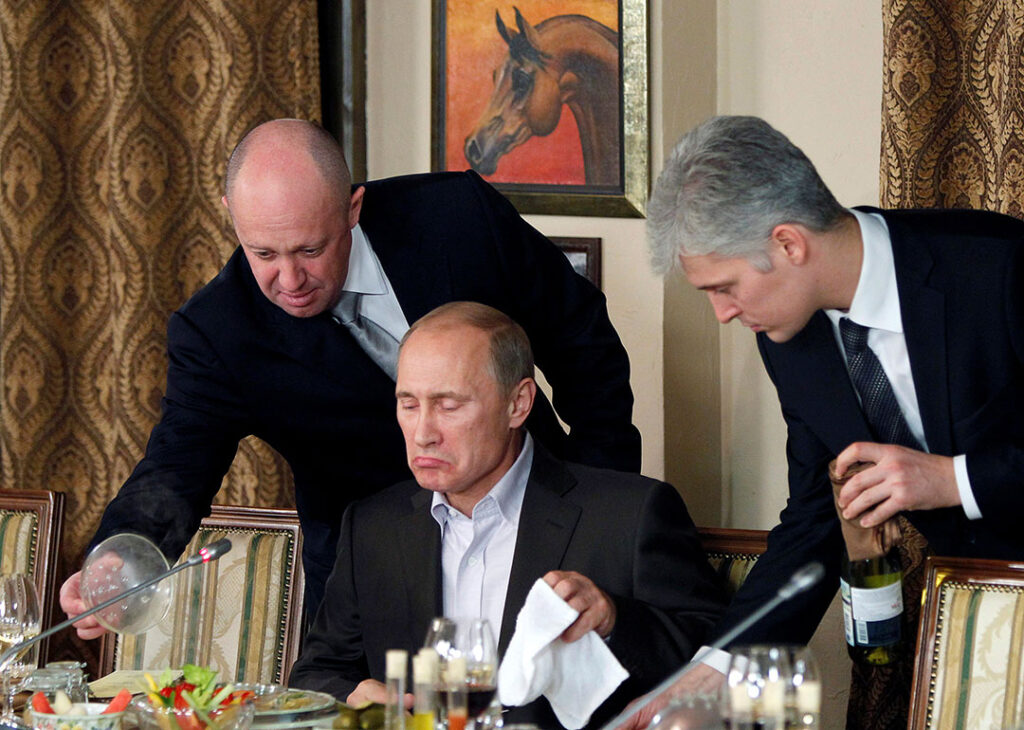ADF STAFF
The U.S. Department of Treasury announced new sanctions targeting Yevgeny Prigozhin, a Russian financier with a worldwide reach. The close ally of Russian President Vladimir Putin is accused of trying to suppress democratic reform in Sudan in exchange for access to natural resources.
Prigozhin heads the Internet Research Agency, which spreads disinformation via social media on behalf of Russian business and political interests. The U.S. government targeted Prigozhin’s physical assets in 2018 over his efforts to influence the 2016 and 2020 U.S. elections. Now targeted are his operations in Sudan, Hong Kong and Thailand.
Prigozhin, who served nine years in a Russian prison on robbery and other charges, is accused of “exploiting Sudan’s natural resources for personal gain and spreading malign influence around the globe,” U.S. Treasury Department Secretary Steven Mnuchin said. “The United States remains committed to holding him and other bad actors accountable so Sudan and other countries can operate freely.”
Prigozhin, 59, is further accused of trying to prop up the authoritarian government of President Omar al-Bashir who ruled for 30 years before being ousted in 2019. While in office, al-Bashir traded Sudan’s oil, natural gas, agriculture and gold assets for Russian military assistance and economic cooperation, the U.S. contends. Since being removed from office, al-Bashir has been convicted on corruption charges and is wanted by the International Criminal Court.
The U.S. sanctions against Prigozhin aren’t merely symbolic, according to Suliman Baldo, a senior advisor at The Sentry, an investigative and policy group that researches money connected with war crimes.
“There is a huge reputational impact that comes with … any entity sanctioned by the U.S., because this leads to the freezing of its accounts and assets that are within reach of U.S. jurisdiction,” Baldo told Voice of America (VOA). “But it also leads to delisting by international financial institutions and [prevents] international corporations from dealing with a company that is sanctioned by the U.S. Department of Treasury, because this could have consequences for them under U.S. laws.”
Over the last year, observers have warned that Prigozhin may use M-Invest, a Russian organization, to derail Sudan’s civilian-led transition to a democratic government. U.S. officials say M-Invest is a cover for PMC Wagner, which helped al-Bashir suppress protesters through disinformation campaigns and threats of violence.
Baldo said that M-Invest advised al-Bashir “to create a whole system of false propaganda to discredit the leaders of the popular pro-democracy protests, then also, they advised him to stage public executions.”
During a 2017 summit, Russia and al-Bashir’s government agreed that M-Invest could explore gold mining sites in Sudan. M-Invest’s subsidiary, Meroe Gold, oversees those activities; Meroe Gold also is targeted by the U.S. Treasury Department, as are two of its key operatives.
Baldo told VOA that Meroe Gold is still operating in Sudan’s gold mining sector, gaining wealth from Sudan “as payment for its continued security services to the Sudanese army, intelligence and the rapid support forces, which is a paramilitary group parallel to a national army.”
But Baldo said he doubts that Sudan’s current government will partner with a “company of such ill repute” like Meroe Gold much longer.
Prigozhin is a former hotdog stand operator who eventually opened a high-end restaurant and became friends with Putin — to the extent that he is referred to as “Putin’s chef.” He seemed unconcerned when asked in 2018 about being indicted by the U.S. for interfering in the 2016 presidential election.
“I am not at all disappointed” about the indictment, he said, according to The Guardian. “If they want to see the devil, let them.”

